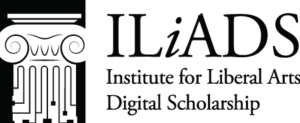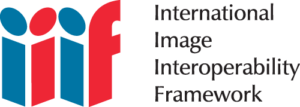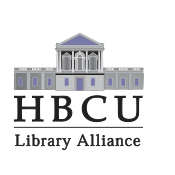CLIR establishes collaborative relationships and cross-institutional initiatives with organizations that have similar missions in the pursuit of common goals. These relationships take many forms, including Affiliates.
As a U.S.-based 501(c)(3) organization, CLIR can serve as a stable fiscal or administrative home for organizations that may not need to be independent legal entities. Affiliates have their own governance and mission, while CLIR provides integrated services and access to tools, platforms, research, and expertise to reduce costs, create greater efficiencies, and allow affiliates to better serve their constituencies.
Affiliate Services
- Escrow accounts
- Invoicing
- Payments
- Vendor relations
- Expense reimbursement
- Employment services (hiring process, documentation, payroll, meetings, etc.)
- Financial services (budgeting, investment advising, reports, etc.)
- IT services
- Event support (staff support, logistics, registration, financial, marketing, etc.)
- Program support
- And more…
Just as each organization is unique, so is a relationship with CLIR. Our list of services is just a starting point for a conversation about how CLIR can help your organization achieve its goals. Interested in our affiliate services or exploring a partnership? Contact Louisa Kwasigroch, managing director, with any questions.
CLIR Affiliates
CLIR is proud to serve as a fiscal host and strong supporter of the Code4Lib community. Code4Lib is a volunteer-driven collective of hackers, designers, architects, curators, catalogers, artists and instigators from around the world, who largely work for and with libraries, archives and museums on technology “stuff.” It started in the fall of 2003 as a mailing list when a group of library programmers decided to create an overarching community agnostic towards any particular language or technology.
Entering its sixth iteration, IliADS is a project-based and team-based opportunity for focused support of a digital project where attendees work alongside other colleagues and experts. Along the way, ILiADS gives institute participants an opportunity to explore the broad questions that frame digital scholarship.
IIIF is a community-driven technology led by world-leading research, national and state libraries, archives, museums, companies, and image repositories committed to providing access to high-quality digitized resources. IIIF makes it possible to give scholars an unprecedented level of uniform and rich access to image-, audio-, and moving image-based resources hosted around the world including images, books, newspapers, manuscripts, maps, scrolls, single sheet collections, and archival materials, as well as oral histories, reformatted media, and more. The IIIF Consortium (IIIF-C) was formed in June 2015 to provide steering and sustainability for the IIIF community.
The International Internet Preservation Consortium (IIPC) is an international organization of libraries and other organizations from over 35 countries established to coordinate efforts to preserve internet content for the future. The Consortium’s main objectives are to:
- identify and develop best practices for selecting, harvesting, collecting, preserving and providing access to Internet content;
- foster broad international coverage in web archive content through outreach and building curated collaborative collections;
- develop international advocacy for initiatives and legislation that encourage the collection and preservation of Internet content;
- encourage and facilitate research use of archived Internet content.
IIPC members regularly publish reports and blog posts, provide training, collaborate on joint projects, host online and in-person events.
LD4 is a community that works together to advance library and archival practices. They focus on linking and using data on the Web to advance the mission, goals and objectives of libraries and archives.
Participation in the LD4 Community is open to anyone–individual or institution; non-profit, government or commercial. Through direct participation, and through its various channels, projects and events, LD4 brings together thousands of individuals worldwide.
The National Digital Stewardship Alliance is a consortium of more than 220 partnering organizations, including universities, professional associations, businesses, government agencies, and nonprofit organizations, all committed to the long-term preservation of digital information. Members work together to preserve access to our national digital heritage.
Repositories play a pivotal role in the information landscape. Through a format that blends DSpace, Fedora, Eprints, and other interest group meetings with general conference sessions covering cross-cutting issues, the international Open Repositories Conference creates opportunities to explore the challenges faced by global academic library, research, preservation, and access communities.
The SCTA is a community and a web service. Its aim is to connect and freely distribute the intellectual history of the scholastic tradition. The SCTA community adopts, develops, and publishes standards for semantically encoding texts related to the scholastic tradition. When we, as a community, adopt these guidelines, our data becomes interoperable.
Weave is a peer-reviewed, open access, web-based publication featuring articles on user experience (UX) for librarians and professionals in related fields.
CLIR Partnerships
A partnership between CLIR, Stanford University, and the Qatar National Library, the Digital Library of the Middle East (DLME) is a worldwide effort to federate all types of cultural heritage material, including archives, manuscripts, museum objects, media, and archaeological and intangible heritage collections. The core principle of our collaboration is that of service to partners and peoples across the Middle East and North Africa—to help reveal, share, honor, and protect collections of cultural materials and the living and historical cultures they represent.
CLIR and the HBCU Library AllianceHBCU Library AllianceHBCU Library Alliance have entered into a long-term partnership that aims to position historically black colleges and universities (HBCUs) as centers of scholarly distinction with unparalleled special collections that illuminate clearly the value, significance, and contributions of HBCUs. This partnership will foster awareness and access to diverse historical records that shaped American history, thus informing dialog to promote the common good.









